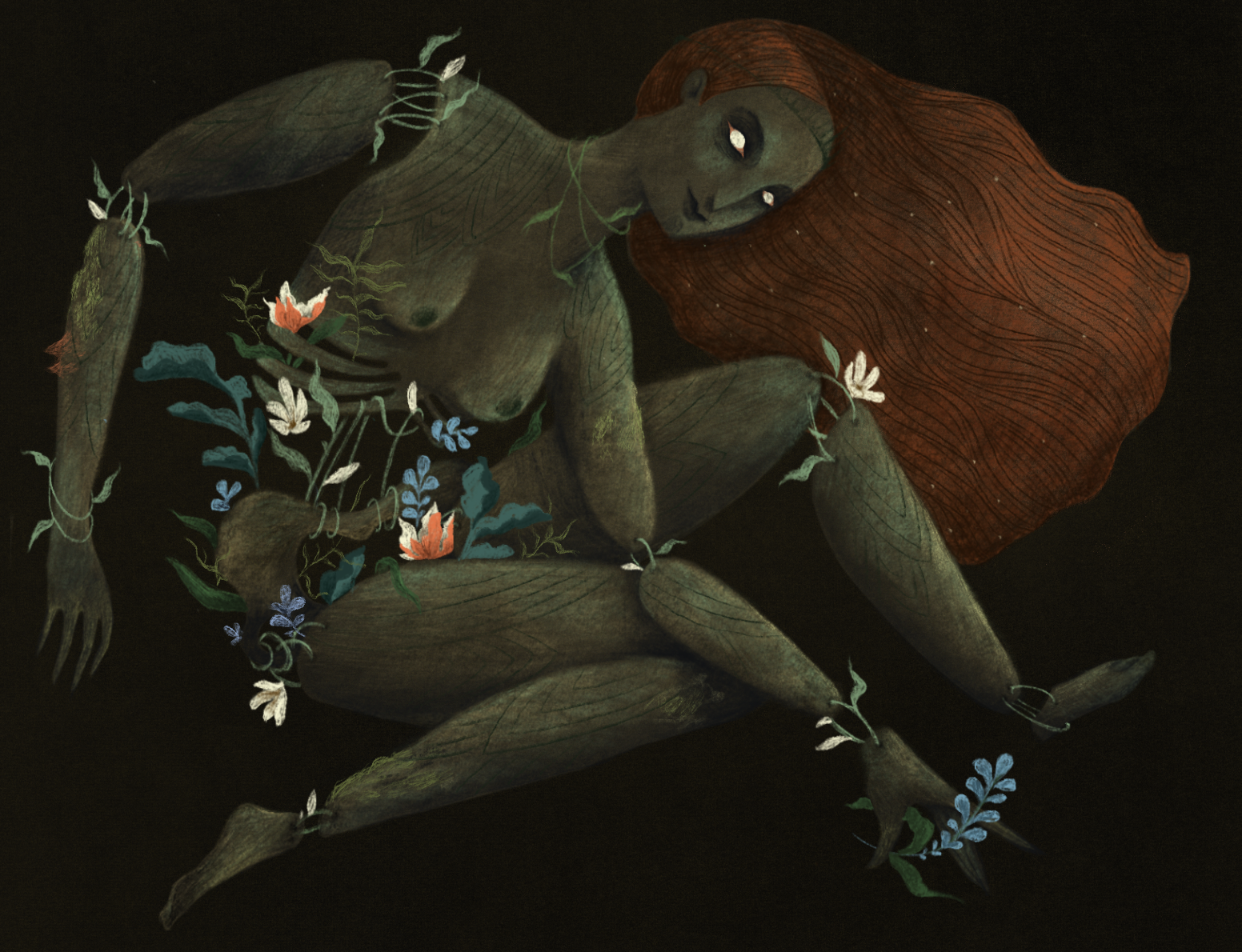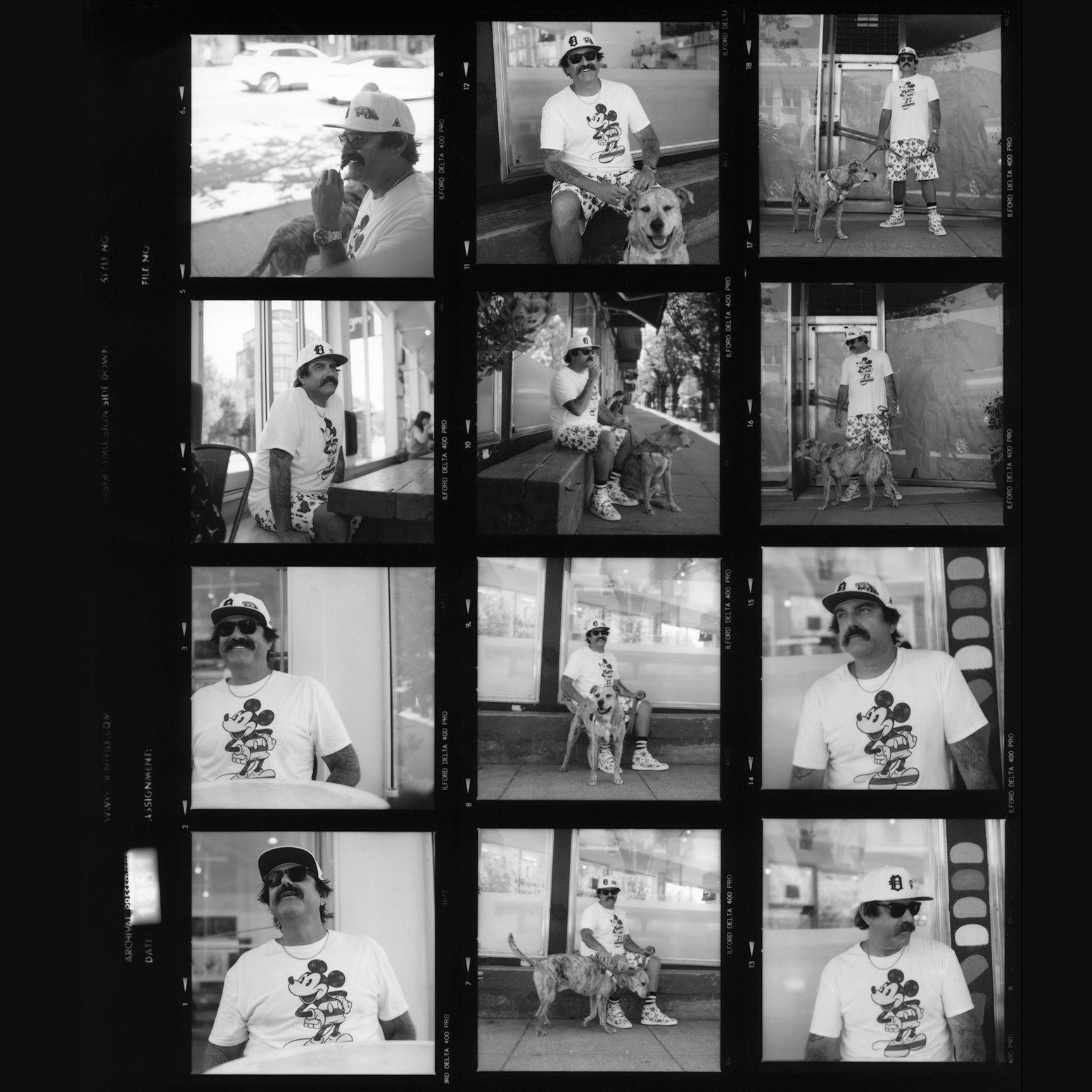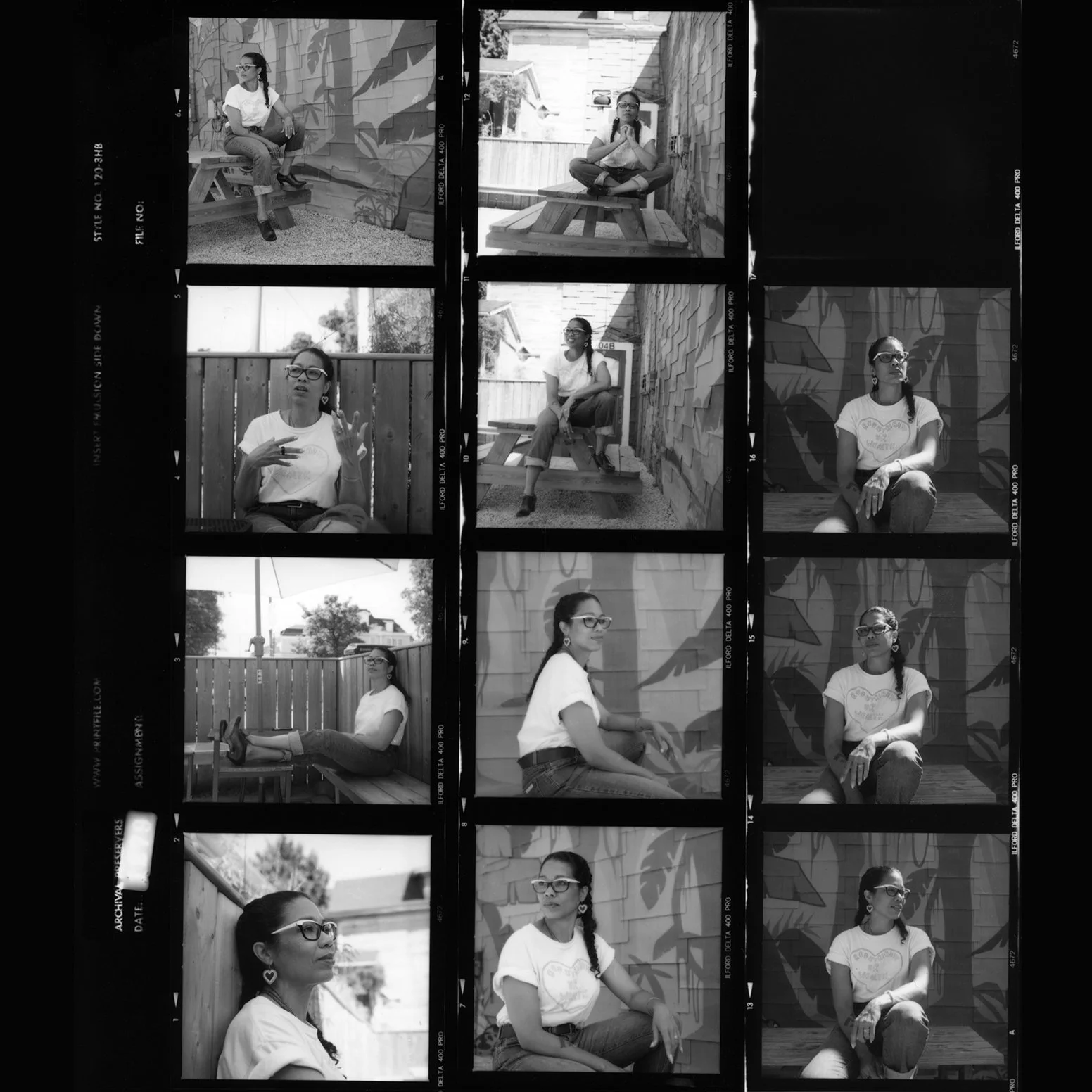In Conversation with Cat Mills
/Cat Mills is a Toronto-based producer and filmmaker with roots in Vancouver. She graduated from the University of British Columbia with a Bachelor of Fine Arts in Film Production. In 2016 she was selected as one in eight for the documentary channel Doc Accelerator program and produced Wicked and Weird Around the World—a ten part web series about festivals and competitions.
FIXED! follows a repair café in Toronto run by volunteers, who teach community members how to mend their broken items. It will premiere at the 2017 DOXA Documentary Film Festival on Monday, May 8 at the Pacific Cinematheque, with a repeat screening on Thursday, May 11 at the Orpheum Annex.
Filmmaker Cat Mills
Jasmine Ruff: First thing's first, what happens at a repair café?
Cat Mills: When you attend a Repair Café, you get paired with a Fixer who teaches you how to fix your item: saving it from the landfill, teaching you skills, and putting you face-to-face with another human being.
JR: How did you hear about repair cafés?
CM: I first heard about the Toronto Repair Café when I was researching interesting things happening in the city. This was when I became aware of the Sharing Economy—a movement that focuses on sharing resources. My mother was an environmental columnist growing up, so we grew up recycling and composting and all the other fun things. Naturally I drift towards these things.
JR: Could you talk about the social value in repair cafés?
CM: Repair Cafés bring together people from all walks of life, sticks them in the same room, and provides an excuse to help one another. People will be drawn to the cafés for financial reasons (it's free!), environmental reasons (keep items out of the landfill) and technical reasons (playing with technology—huzzah!), but regardless of the reasons, it is a safe place to get to know other people. It brings us together.
I love grabbing a coffee and a snack and just walking around and seeing what is getting fixed and asking people about their item—they are usually more than happy to chat and share their story.
I think it is easy for us to get caught up with lifelong work hours, chores, kids, and the “World Wide Web”, and forget about community barbecues and other activities that bring neighbourhoods together. I feel like we undervalue the importance of community, and I'd really like to see that change.
JR: Do you have any thoughts about FIXED! premiering in Vancouver, a notoriously expensive city, and what an increased awareness of repair culture could mean for the city?
CM: It seems like prices in all cities are going up, and stretching out one's budget is challenging. Vancouver and DOXA struck us as the perfect place to premier FIXED! because Vancouverites tend to be environmentally conscious, or so I've found. We felt that the city would be a natural fit for the repair movement, which it in fact is—there are already several repair groups, including Frameworq and the Vancouver Fix It Collective.
Film still from Mills' FIXED!
Fixing your belongings saves you money, but it also makes you question what objects you buy and why. I try to buy things that I know will have a long life and that will require minimum repair. Even if it costs more money up front, it will save me money in the long run.
We don't need to buy as much as we have. I used to fight boredom by going to the mall and buying stuff. It never made me happier and it cost me a lot of money. I'm much happier having fewer things that I care more about, and through the Repair Café, I have managed to keep using some things that I absolutely love. Repair Cafés make sense for a lot of reasons, but one of those reasons is financial.
JR: In an interview with Do What You Love you talked about how, before you got The Wicked and the Weird off the ground, you told people you were going to do it to hold yourself accountable to the project. Could you talk more about that? Has that same mentality transferred into FIXED!?
CM: Oh wow, that takes me back! Yes, this same mentality has kept me busy. It is very easy to come up with ideas for something that you think would be great, then sit around and never actually do it. I'm sure we all have that novel that is just waiting to be written! One day... soon… I swear!
Telling people what you want to do is the first step to actually doing it. Make sure you find a friend that will annoyingly keeping asking you about progress until you decide it is easier to make the thing than to keep dodging questions.
Going to the Repair Café has actually shaped the way that I look at my life. It has challenged me to try things that I didn't know how to do because, how else will I learn? I've also spent a lot of time over the past few years thinking about failure, and how important it is that we fail. I've learned ten times more from failing than I have ever learned from succeeding. I've also learned that failing won't kill me. Though this might really depend on what you are actually failing at—I see it going poorly for aspiring dare devils.
For FIXED!, it came down a bit more to the “why not?” I had seen that there was a short pitch competition at Hot Docs sponsored by BravoFact, and I thought that it couldn't hurt to apply. I learned a lot when I was rushing to put together the budget and materials. I submitted it. It was accepted. Then it was the next step of putting together a proper pitch and doing it in front of an audience, which was nerve-wracking to say the least. But I did it, and the film won and we got to make it! Hurray! Then came more learning curves about things that I hadn't yet experienced—complex budgets, taxes, E&O insurance, etc.
So things have evolved since that interview. I would say my method is now: tell people what you want to do, do it even if you think it might suck, and remember that you are learning new things and next time it will be easier.
JR: How do you deal with your inner critic as a filmmaker?
CM: Personally, I have to keep making things and seeing how stories unfold and work. It is the only way I am going to learn and improve.
I look back at the films that I've done in the past and hated at the time and I don't hate them anymore. I see room for improvement, but I also see the humour and charm in them. I think it’s natural to hate everything that you do as an artist. At least, I do. With film, you watch something over and over and over and it completely loses meaning.
I used to finish up a film and want to go and cry and/or hide. I'm not sure why—perhaps it comes with the fear of actually putting yourself out there and opening yourself up to critique. But each time, I get up, dust myself off, and focus on the next project. I need to keep moving forward.
I've shed a lot of my insecurities over the years. They will occasionally creep up, but these days I'm much more excited by sharing stories. Filmmaking should be fun! It's work, but at the end of the day, it is fun.
JR: What advice would you give to young filmmakers trying to move past their insecurities?
CM: Find a support network with people who's opinions you trust. If you're not sure if something works, show it to them and trust that they'll tell you the truth, then figure things out.
These days I depend a lot on support from friends and family to help me work through the challenges with film. Joella Cabalu, the producer on FIXED! is a great support. She has a good eye for story and detail and, when I'm feeling overwhelmed, will put me back on track so that we can share a great story.
JR: And finally, what do you hope the outcome of people seeing this film will be?
CM: We are really hoping that the film will reach a wide audience and inspire others to start Repair Cafés in their own communities. A lot of the people I've talked to are excited about the movement as well, so fingers crossed they spread the message!
FIXED! will be screening at the Cinematheque on May 8 and at The Annex on May 11. Tickets can be found here. We hope to see you there!



















